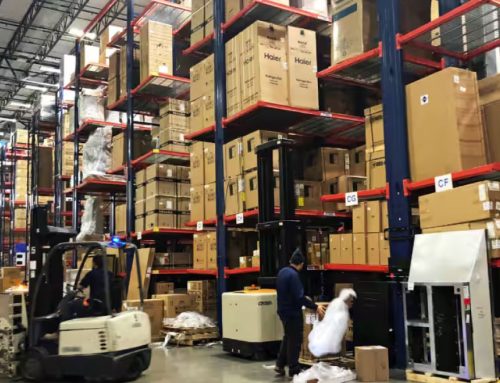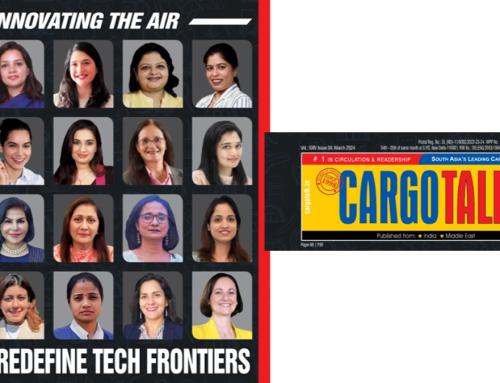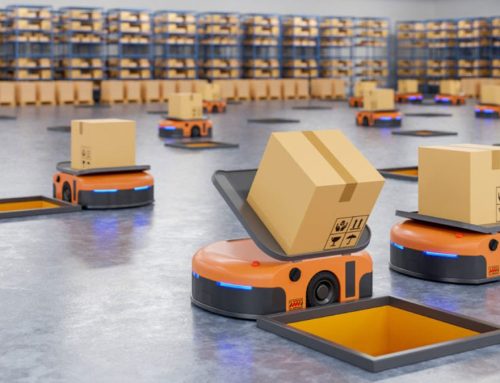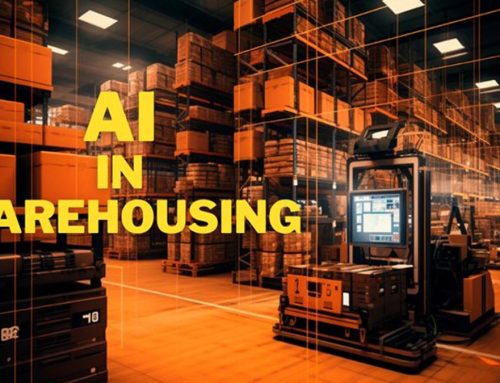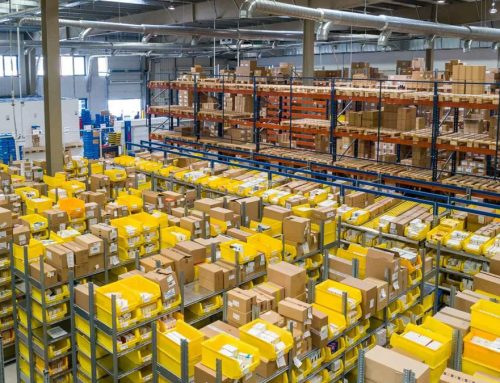Revolutionising warehousing: The rise of automation in logistics

Posted on: April 15, 2024
In recent years, the landscape of warehousing and logistics has undergone a remarkable transformation, driven by the relentless advancement of automation technologies. From robotic picking systems to autonomous forklifts, the integration of automation
Here is an explanation from an expert on the rise of automation in warehouse logistics.
In recent years, the landscape of warehousing and logistics has undergone a remarkable transformation, driven by the relentless advancement of automation technologies. From robotic picking systems to autonomous forklifts, the integration of automation has revolutionised traditional warehouse operations, reshaping the efficiency and scalability of supply chains worldwide.
This paradigm shift not only accelerates order fulfilment but also enhances accuracy, reduces labour costs, and improves workplace safety. As companies increasingly embrace these innovations, the role of human workers evolves, focusing more on supervisory tasks and strategic decision-making. The rise of automation in logistics heralds a new era of streamlined operations and heightened productivity.
Mr Nirav Doshi, Founder and Managing Director of NIDO Group, shared more insights with us.
What opportunities for career growth and advancement exist in warehouse automation?
Warehouse automation in India offers diverse career opportunities spanning technical, managerial, analytical, and innovative domains. Roles include automation engineers, robotics specialists, and software developers focused on warehouse management systems.
Operations managers and supply chain analysts optimise efficiency, while technicians ensure smooth system operation. Data analytics and AI experts enhance decision-making, while consultants and researchers innovate new solutions. Overall, warehouse automation presents an exciting field for career growth and advancement, driven by evolving technologies and increasing demand for efficiency in India’s logistics industry.
Can you explain the key components of warehouse automation and supply chain management?
Warehouse automation and supply chain management are pivotal in optimising logistics and distribution. Automation technologies like ASRS and AGVs revolutionise warehouse operations by automating storage, retrieval, and transportation tasks. WMS and WCS are central in managing inventory, order fulfilment, and real-time monitoring.
Meanwhile, supply chain management ensures a seamless flow from suppliers to customers through supplier management, inventory strategies, efficient order fulfilment, and logistics management. Integrating technology such as ERP and analytics tools enhances decision-making and process optimisation. Together, these elements drive efficiency, reduce costs, and elevate customer satisfaction, underlining their crucial importance in modern logistics and distribution operations.
What innovative intralogistics automation solutions does NIDO Group offer to SMEs, 3PL, D2C, and E-commerce companies, and how are these solutions contributing to their operational efficiency?
NIDO Group’s intralogistics automation solutions cater to SMEs, 3PL providers, D2C businesses, and E-commerce companies, enhancing operational efficiency and streamlining warehouse processes. These solutions include smart conveyor systems, automated putaway and picking solutions, and order fulfilment automation, leveraging robotics and advanced technologies to boost speed and accuracy while reducing labour and errors.
Sorter systems and the ASTRO sortation system further increase throughput and efficiency, with ASTRO offering versatility and scalability. Additionally, NIDO Group implements AS/RS solutions and deploys AGVs to optimise storage space utilisation and material flow, contributing to faster order processing and reliable operations for SMEs and 3PL providers.
With NIDO Group’s expansion to tier 2 and tier 3 cities in India, what strategies are being implemented to cater to the unique warehouse automation and automation needs of businesses in these regions?
NIDO Group addresses automation needs in tier 2 and tier 3 cities through scalable, modular systems, ensuring manageable initial costs and adaptable growth. Emphasising affordability, they utilise simpler technologies and offer tailored options. Robust training programs equip businesses with the necessary effective operation and maintenance skills.
Flexible customisation accommodates diverse industry sectors and operational requirements. By prioritising scalability, affordability, and comprehensive support, NIDO Group aims to empower businesses in smaller cities with accessible automation solutions, enhancing operational efficiency and competitiveness. Our commitment underscores our dedication to meeting the unique needs of companies across India’s smaller urban centres.
How is technology, such as AI, IoT, and blockchain, used in warehouse automation?
AI, IoT, and blockchain technologies revolutionise warehouse automation, enhancing efficiency, accuracy, and transparency. AI’s predictive analytics optimise inventory management, while AI-powered robotics streamlines complex tasks. IoT devices improve inventory management by enabling real-time data collection and equipment maintenance optimisation.
Blockchain ensures transparency and traceability, fostering trust among supply chain stakeholders. Integration of these technologies enables intelligent and efficient warehouse operations, driving cost savings and enhancing customer satisfaction in the competitive logistics landscape.
Are there any certifications or additional training programs you recommend for someone starting a career in warehouse automation?
Beginning a career in warehouse automation offers promising prospects for growth. Certifications such as CAP and CSCP validate expertise in automation and supply chain management. Understanding Lean Six Sigma principles optimises workflows, while WMS and robotics training provide practical knowledge. Online platforms like Coursera and Udemy offer courses on warehouse automation and AI applications.
Manufacturer-specific training enhances proficiency in automation equipment. Continuous learning through workshops and conferences keeps professionals updated on industry trends. These certifications and training programs enhance marketability and demonstrate dedication to professional growth in warehouse automation.
What are the typical career progression steps in the warehouse automation industry?
Career progression in warehouse automation evolves through entry-level positions like Warehouse Technician, advancing to mid-level roles such as Warehouse Supervisor or Automation Engineer, overseeing daily activities and project design.
Experienced professionals reach senior positions like Warehouse Manager or Automation Director, managing operations and driving innovation. Specialised roles include Supply Chain Analyst or Robotics Specialist, focusing on specific areas like supply chain optimisation or robotics. Executive roles like COO or CTO lead operational or technological aspects, fostering innovation. Continuous learning, certifications, and specialised skills are vital for staying competitive. Entrepreneurship opportunities exist in starting automation consulting firms or technology startups and advancing careers in warehouse automation.
What are the current trends shaping the warehouse automation industry?
The warehouse automation industry is transforming with technological advancements and evolving consumer demands. Key trends include increased robotics adoption, AI integration for real-time decision-making, and IoT-enabled smart warehousing for visibility and efficiency.
Multi-channel fulfilment and sustainability initiatives are prominent alongside blockchain for transparency. Human-robot collaboration enhances productivity and safety. Embracing these trends enables organisations to meet customer expectations and optimise efficiency, remaining competitive in the logistics landscape.
What educational background or qualifications are preferred or required in the warehouse automation field?
A diverse educational background is essential for warehouse automation roles, with degrees in engineering (mechanical, electrical, or industrial) providing a foundation for technical positions. Computer science or IT degrees are valuable for software development and system integration roles, while robotics or mechatronics training is beneficial for robotic systems.

Mr Nirav Doshi, Founder and Managing Director of NIDO Group
Degrees in supply chain management or logistics aid in understanding broader operations. Industry certifications validate expertise, while practical experience through internships or hands-on training is highly valued. Continuous learning through workshops and online courses is crucial for staying updated. Success in warehouse automation requires combining technical expertise, industry knowledge, practical experience, and problem-solving skills.
